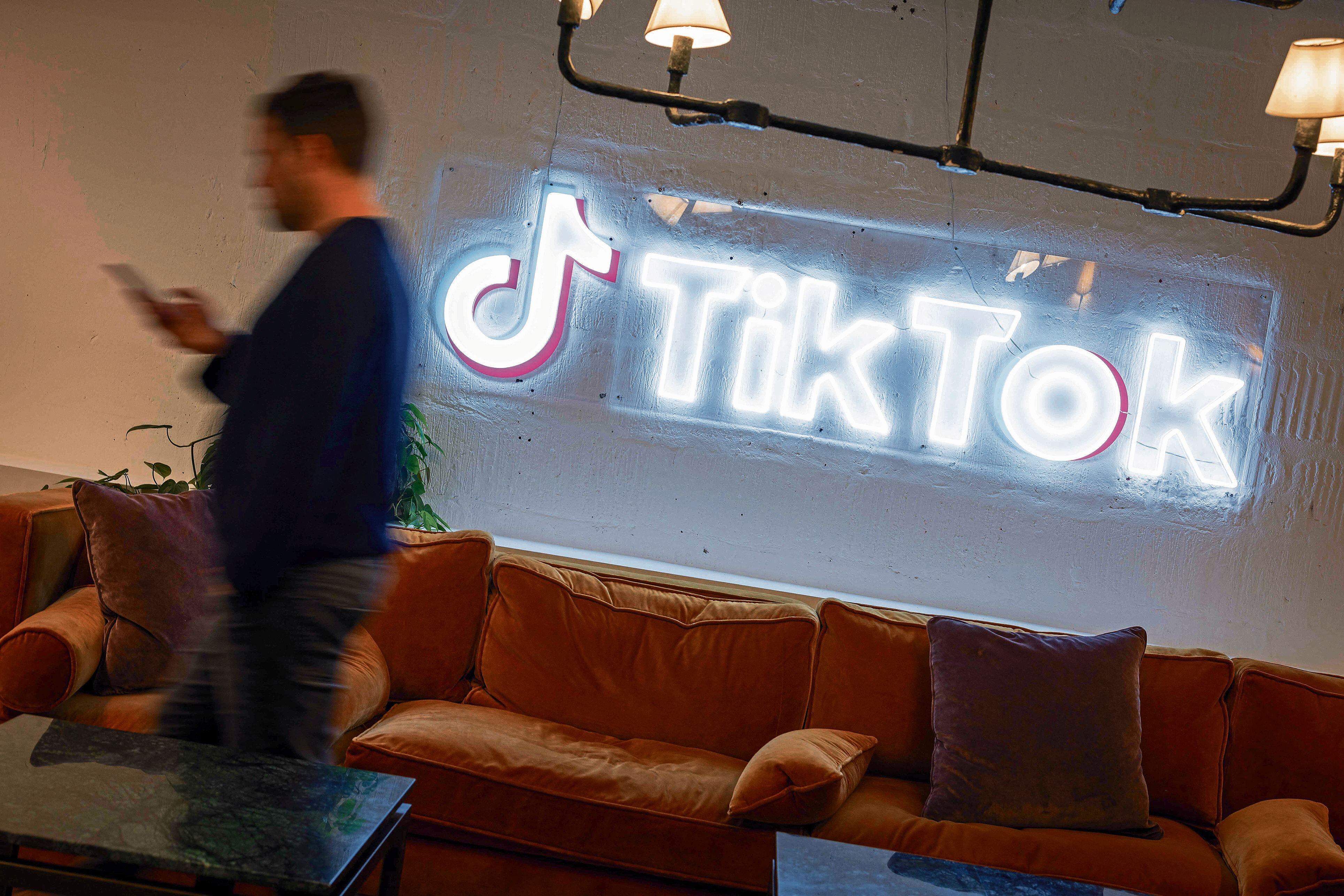The battle between TikTok It is U.S became even more embroiled this week after the popular social network and its Chinese owner, ByteDance, sued Joe Biden’s administration on Tuesday in an attempt to block a law that would end up banning the platform nationwide. It is the latest episode in a confrontation that has put the application on the ropes, with an ultimatum to decide between selling to a buyer with no ties to Beijing or disappearing from a nation where it has 170 million users.
TO LOOK: Argentine banknotes ‘made in China’: a rapprochement between Milei and the Asian giant?
At the center of the discussion is the Protecting Americans from Applications Controlled by Foreign Adversaries Act. When President Joe Biden signed the rule on April 24, it was announced that giant ByteDance had 270 days to find an investor from a country that was not a “foreign adversary” to sell the company to.
The dispute generated a broad debate about the protection of national interests and freedom of expression. On the one hand, the United States argues that the company collects data that can be used by the Chinese Government for espionage and propaganda purposes. On the other hand, TikTok and representatives of social organizations consider that the law violates the platform users’ freedom of expression, guaranteed by the First Amendment of the US Constitution.
In its filing before the U.S. Court of Appeals for the District of Columbia Circuit, TikTok notes that “for the first time in history, Congress passed a law permanently banning a speech platform nationwide and banning “all U.S. to participate in an online community of more than a billion people around the world.”
Below, we review the scenarios that open up after the legal measure adopted by TikTok.
The new law has put TikTok in a battle against the clock. The company has nine months to find a non-Chinese buyer. Although the limit for the sale is 270 days, if it is already underway, the period can be extended for another 90 days to conclude the agreement. During this period, the app would continue to work for US users.
If TikTok does not change ownership, regulations will require app stores and web hosting services in the United States to stop working with the social network, which would result in a ban in the country, explains “The New York Times ”.
“There is no doubt: the law will force a blackout of TikTok by January 19, 2025” and this will “silence those who use the platform to communicate in a way that cannot be replicated anywhere else,” TikTok said in its process.
TikTok stated that the asset sale required by the United States “is simply not possible” and that it cannot be carried out within the stipulated deadline.
“What is clear is that the North American market is extremely attractive for TikTok and that having the platform in scenarios outside of China is also attractive for the company, so it will not necessarily be interested in selling it to someone else” , he states. to El Comercio, the lawyer specializing in digital law, Erick Iriarte.
Consider that another important point is that the buyer will eventually need validation from the US government in order to continue operating. “If that is the case, it is a fraudulent sale because Washington can continue to say that it has some kind of connection with the Chinese government,” he says.
TikTok, which has repeatedly denied any ties to the Chinese government, is fighting to not disappear in the United States and has no intention of backing down, making selling the platform the least likely option for now.

But even if you want to find another owner for the social network, the path is not so simple. One of the main obstacles is that the acquisition would have to have the approval of Beijing, which previously opposed a forced sale and signaled its opposition on this occasion, recalls the AP agency.
There is also the factor of the possible new buyer. Not all technology companies can acquire such an expensive company. Furthermore, tech giants like Google’s Meta or YouTube would likely not be able to do so due to antitrust rules. Another point that complicates the sale is that the company would have to reveal the secret of its algorithm that helps to show personalized content to users, the key to its success.
Furthermore, TikTok claims that it is impossible to move the application’s underlying code to a new owner and that it would take years for a new group of engineers to become familiar with that code to develop and maintain the platform, recalls “The New York Times.” According to the company, engineers would need access to ByteDance software to keep TikTok running, which the new law prohibits.
The lawsuit filed this week is heading towards a long legal battle that could reach the Federal Supreme Court.
Although TikTok has already faced bans in other states across the country, the current threat is a federal law that is bipartisan in nature, so the Supreme Court could decide to prioritize national security.
Iriarte highlights that TikTok opted for legal action because it sees itself as the main victim of a law issued by the United States. “What TikTok is doing is asking the Court to declare the rule unconstitutional or to declare it inapplicable to its company. Basically he filed an amparo action,” he explains.

With this scenario, adds the expert, Washington will have to defend the new law and the arguments that support it until a judge finally establishes who is right.
“TikTok will probably ask that while the case is resolved, the United States pauses the enforcement of regulations, thus buying a little time to not sell until the case is resolved. The first measure he will request will probably be a ‘no action’ precautionary measure until the final outcome is clear,” he says.
Speaking to AFP, Gautam Hans, a law professor at Cornell University, said that “the bipartisan nature of this federal law may make judges more likely to give in” to Congress and arguments in favor of national security. “However, without public discussion about what exactly the risks are, it is difficult to determine why courts should uphold such an unprecedented law,” he added.
In its lawsuit, TikTok asks the court to issue a declaratory judgment that the new law violates the United States Constitution and, in short, to issue an order prohibiting the attorney general from enforcing it.
Iriarte highlights that it is clear that TikTok will try to take the case in defense of freedom of expression and freedom of industry. Washington, in turn, will take control of critical national assets and national security.
Could TikTok win? For the expert, a victory for TikTok will largely depend on the arguments. “I believe that if justice acts and the arguments are good, I can win.”
“The decision of the judge or the Federal Supreme Court, depending on the instance reached, will be fundamental for the subsequent understanding of this balance between national security and the protection of the State against the use of tools that are fundamentally based on freedom of expression or freedom of business , even if there is an owner behind it who may be a country contrary to the US positions. But in the meantime the positions are clear: national security vs. freedoms”, he concludes.
Source: Elcomercio
I am Jack Morton and I work in 24 News Recorder. I mostly cover world news and I have also authored 24 news recorder. I find this work highly interesting and it allows me to keep up with current events happening around the world.

:quality(75)/cloudfront-us-east-1.images.arcpublishing.com/elcomercio/HRNCUPV7IZAZDG2FQAPAWGMJWQ.jpg)

:quality(75)/cloudfront-us-east-1.images.arcpublishing.com/elcomercio/MN3VMQALVVGTRCYVEIXA3ZNUUE.jpg)
:quality(75)/cloudfront-us-east-1.images.arcpublishing.com/elcomercio/LA6QWRDVGFAA3HMK2NZIZFGWZE.jpg)
:quality(75)/cloudfront-us-east-1.images.arcpublishing.com/elcomercio/NWYCYBTAHRGJTKLYNKSRKVH7QY.jpg)
:quality(75)/cloudfront-us-east-1.images.arcpublishing.com/elcomercio/GQ2DCMZNGAYS2MJVKQ2TMORUGQ.jpg)
